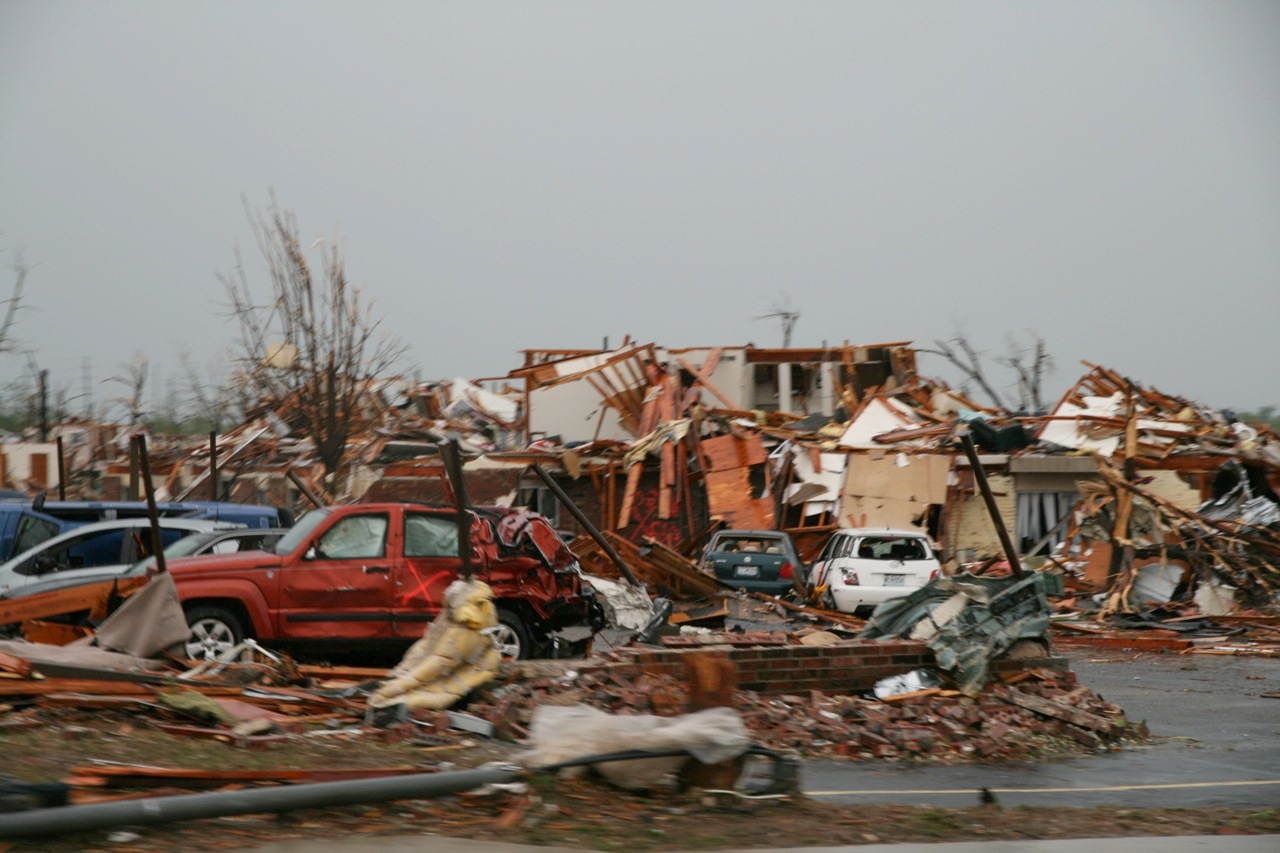Source: Outpatient Surgery Magazine
Written by: David Bernard
Photo of Dr. Smith courtesy Orthopaedic Specialists of the Four States.
Photo of Joplin, Mo., tornado destruction courtesy of KOMUnews
James D. "Dusty" Smith, MD, and his surgical team were midway through a routine case, the draining of a patient's infected hip, when the tornado hit St. John's Regional Medical Center in Joplin, Mo., Sunday.
Written by: David Bernard
Photo of Dr. Smith courtesy Orthopaedic Specialists of the Four States.
Photo of Joplin, Mo., tornado destruction courtesy of KOMUnews
James D. "Dusty" Smith, MD, and his surgical team were midway through a routine case, the draining of a patient's infected hip, when the tornado hit St. John's Regional Medical Center in Joplin, Mo., Sunday.
The case proceeded smoothly until a scrub tech remarked that his ears were ringing. "My ears were popping," recalls Dr. Smith in an interview with Outpatient Surgery Magazine. "The barometric pressure was dropping." He'd experienced this phenomenon once before, when Hurricane Ivan raked southern Alabama in 2004 while he was training in Mobile.
When the lights went out, the team kept working under auxiliary power. "Then we felt a physical hit," he said. "Did the tornado hit the building? Had something exploded?" They were plunged into darkness, with ceiling panels falling and the OR's doors blowing open. "And we were in an interior room," notes Dr. Smith.
With 1 staffer holding a handheld flashlight and another holding the doors shut to prevent shards of glass, concrete and metal from blowing in, the team completed the operation while standing ankle deep in water, without the benefit of advanced surgical technology. "The doctor who trained me thought it was important to know how to do surgery the way they used to, with manual instruments," said Dr. Smith. "That should be a part of everybody's training."
Because they didn't know what condition the rest of the hospital was in, they recovered the patient in the OR, then found an alternate route to the post-op ward, which now housed a makeshift emergency department (the tornado had demolished the ER).
After the surgery, Dr. Smith excused himself to check on his family. Finding his car destroyed, he ran the 8 miles home. "Anybody in that situation, no matter what shape you're in, if you don't know whether your wife and children are OK, you can run any distance you want," he says. "I wasn't even tired when I got home."
 The storm damage in his neighborhood south of the city was minimal and his home was spared, though it had lost power. His two 5-year-old sons, thinking that the candles his wife was lighting in the darkness meant it was a birthday celebration, kept blowing them out.
The storm damage in his neighborhood south of the city was minimal and his home was spared, though it had lost power. His two 5-year-old sons, thinking that the candles his wife was lighting in the darkness meant it was a birthday celebration, kept blowing them out. He'd intended to return to St. John's that night in another vehicle, but the roads were clogged with traffic and debris. So he turned instead to the State Line Surgery Center, across the border in Galena, Kan., where he also practices and where the staff was triaging local residents injured in the storm. "School buses full of people were there on Sunday night," he says. While the ASC didn't have the capability to serve as a trauma center, a heart attack patient was stabilized and compound fractures were washed and treated to prevent infections.
Monday saw the area's healthcare providers circulating among the remaining facilities, looking to lend a hand as the magnitude of the disaster began to sink in. St. John's had suffered several casualties and severe structural damage. Another hospital, lacking water pressure, was unable to sterilize surgical instruments.
"The big problem is the availability of space to provide patient care," says Dr. Smith. "We've got more doctors and staff wanting and willing to help out than we have space to do it in. St. John's is a big hospital, and we've lost all those beds." Even if it wasn't damaged in the storm, he speculates, it would likely still be taxed by the amounts of patients in need of help.
As for Sunday's case, Dr. Smith found out on Tuesday morning that the outcome was good and the patient safe at another hospital. "We were trying to find out," he says. "Then I got a call from a doctor who's referred spine cases to me. He asked, 'Were you operating during the tornado? We got your patient here.'"


No comments:
Post a Comment